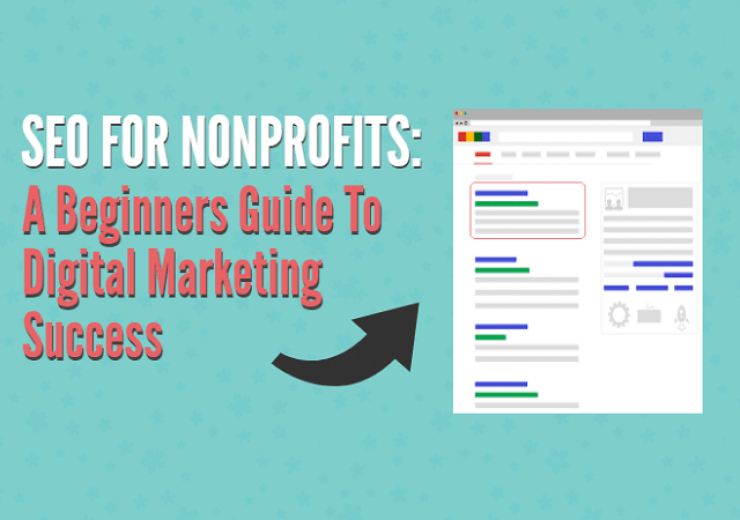Indicators on Learn Seo You Should Know
 SEO for Beginners: The Complete Guide ...
SEO for Beginners: The Complete Guide ...
 SEO for Beginners: Step-by-step ...
SEO for Beginners: Step-by-step ...
However if your prospect is a CMO or marketing director, getting in front of them with a handy resource on examining pay-per-click tools might be a great "very first touch" and an exceptional way to start a relationship with a potential buyer. As with any company opportunity, in SEO you desire to consider the potential costs and probability of success.
First you require to comprehend who your prospective customers are and what they're most likely to search for. If you do not currently understand who your potential customers are, thinking of that is a good location to start, for your company in general but likewise for SEO. From there you desire to understand: What types of things are they interested in? What problems do they have? What type of language do they utilize to describe the important things that they do, the tools that they utilize, etc.? Who else are they buying things from (this implies your competitors, however likewise could indicate tangential, related tools for the e-mail marketing company, believe other enterprise marketing tools)? As soon as you have actually responded to these questions, you'll have a preliminary "seed list" of possible keywords and domains to assist you get additional keyword ideas and to put some search volume and competitors metrics around.
You can also utilize competitive keyword tools like SEM Rush to see what terms your rivals are ranking for. These tools take a look at countless various search engine result, and will reveal you each search term they've seen your competitor ranking in Google for lately. Here's what SEM Rush reveals for marketing automation supplier Marketo: Again: this doesn't simply need to be something you look at for rivals.
Rumored Buzz on Learning Seo
Furthermore, if you have an existing site, you're likely getting some traffic from search engines already. If that's the case, you can utilize a few of your own keyword information to help you understand which terms are driving traffic (and which you might be able to rank a bit better for).
Google also makes a bit more of this information readily available in their complimentary Web designer Tools user interface (if you have not set up an account, this is an extremely valuable SEO tool both for uncovering search question information and for diagnosing various technical SEO concerns more on Webmaster Tools set up here).
Once you have actually put in the time to understand how your prospects talk and what they look for, have actually taken a look at the keywords driving traffic to your rivals and related sites, and have actually taken a look at the terms driving traffic to your own website, you need to work to understand and. Determining the relative competitors of a keyword can be a fairly intricate task.
3 Easy Facts About Understanding Seo Explained
There are also a variety of different tools (most of them paid) that offer keyword difficulty ratings: And while it's more advanced in nature, Nick Eubanks' post about comprehending rank possible offers an excellent in-depth appearance at not only comprehending however developing an actionable formula for figuring out keyword competition and your own site's real likelihood of ranking for a term.
 A Guide to Local SEO: 5 Easy Steps to ...
A Guide to Local SEO: 5 Easy Steps to ...
Each page on your website must be targeting a core term, and a "basket" of associated terms. https://marketingrambling898.hatenablog.com/entry/2020/08/05/024831 In his overview of the perfectly enhanced page Rand Fishkin uses a good visual of what a well (or perfectly) enhanced page looks like: Let's look at a few important, standard on-page aspects you'll want to comprehend as you consider how to drive search engine traffic to your website: While Google is working to better understand the real significance of a page and de-emphasizing (and even penalizing) aggressive and manipulative use of keywords, including the term (and associated terms) that you want to rank for in your pages is still important.
The title tag is your page's primary headline. The headline you see on the page is usually an H1 (or perhaps an H2) HTML element. The title tag is what you can see at the extremely top of your web browser, and is occupied by your page's source code in a meta tag: The length of a title tag that Google will reveal will differ (it's based on pixels, not character counts) however in general 55-60 characters is an excellent general rule here.
6 Easy Facts About Learn Seo Shown
Bear in mind though: the title tag will regularly be what a searcher sees in search results page for your page. It's the "heading" in natural search results page, so http://edition.cnn.com/search/?text=photography you also wish to take how clickable your title tag is into account. While the title tag is successfully your search listing's heading, the meta description (another meta HTML aspect that can be updated in your website's code, however isn't seen on your actual page) is successfully your site's extra ad copy.
( Remember: appearing in search engine result is simply the primary step! You still need to get searchers to come to your website, and after that actually take the action you desire.) Here's an example of a real life meta description revealing in search engine result: The real content of your page itself is, obviously, very crucial.
That said, Google has been progressively preferring specific kinds of material, and as you develop out any of the pages on your website, there are a couple of things to bear in mind: There is no magic number in terms of word count, and if you have a couple of pages of content on your site with a handful to a couple hundred words you won't be falling out of Google's good graces, however in basic current Panda updates in particular favor longer, distinct content.
The Single Strategy To Use For Seo For Beginners
Take a look at the whole of your website: are a big percentage of your pages thin, duplicated and low value? If so, try to determine a way to "thicken" those pages, or check your analytics to see just how much traffic they're getting, and simply exclude them (using a noindex meta tag) from search engine result to keep from having it appear to Google that you're trying to flood their index with great deals of low value pages in an effort to have them rank.